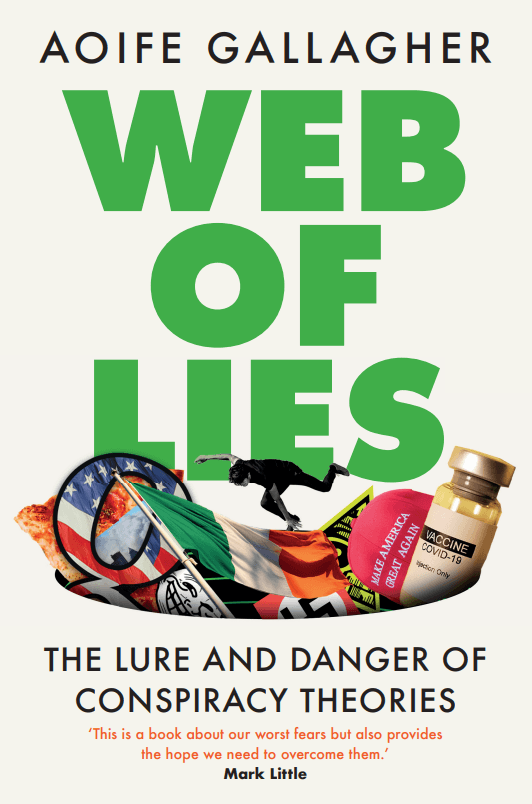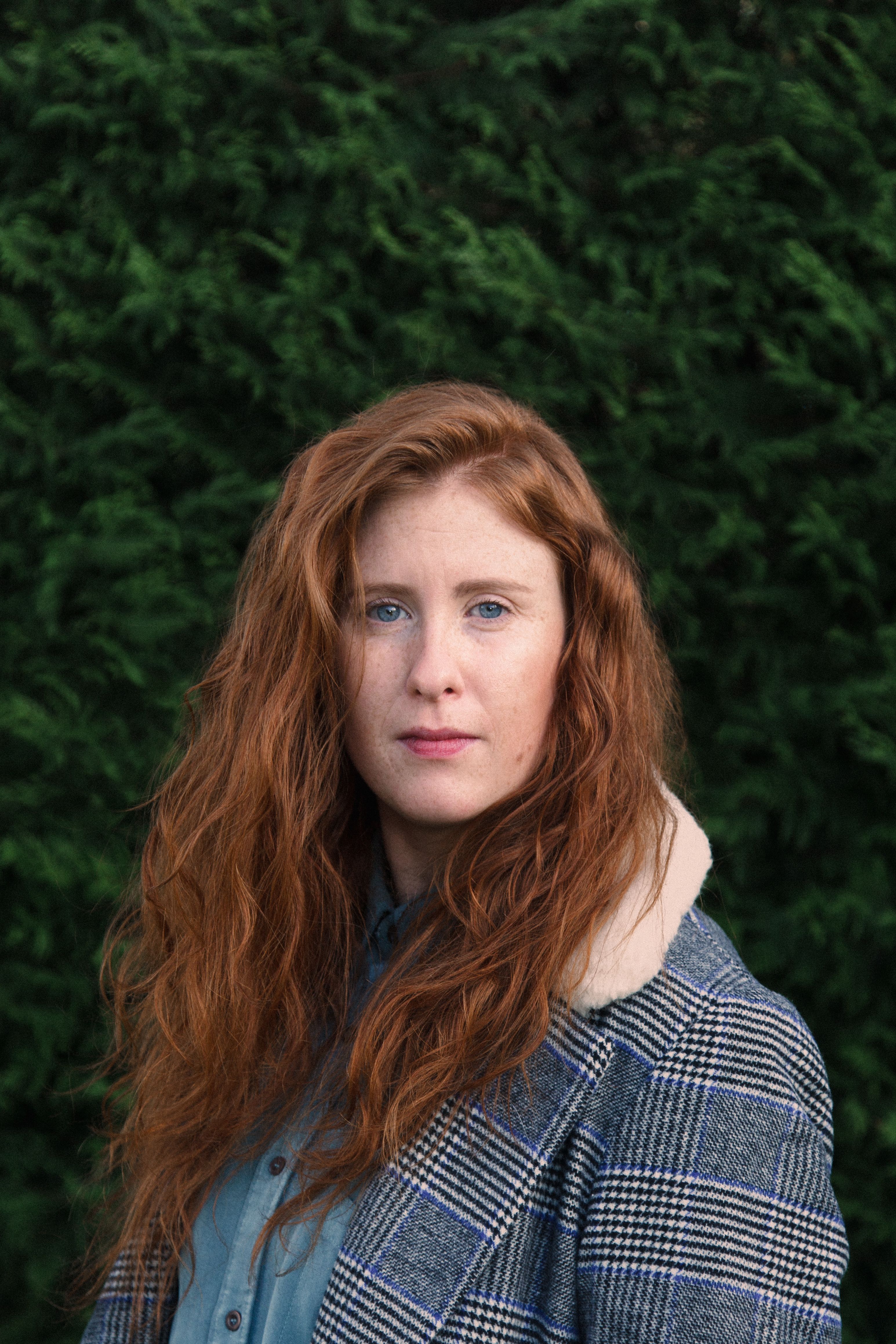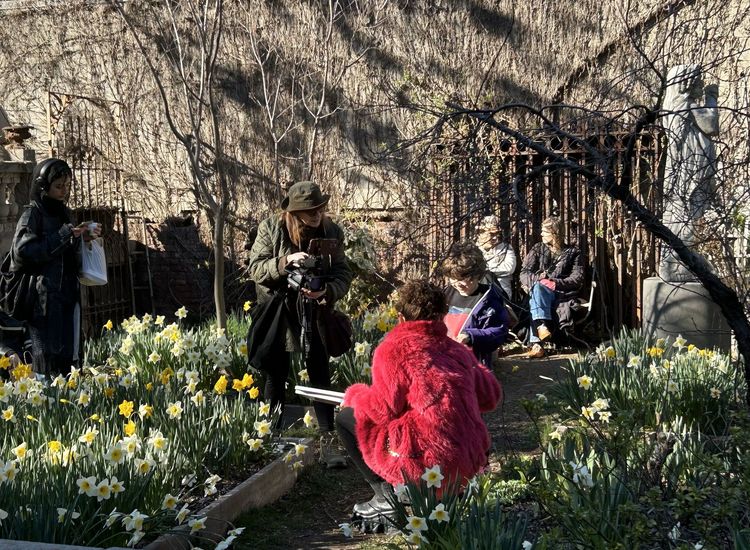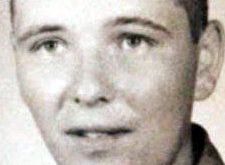We’re all conspiracy theorists, or at least we are in our personal lives.
So argues Aoife Gallagher in her book “Web of Lies: The Lure and Danger of Conspiracy Theories.”
“For example,” she writes, “if you order a drink in a bar that tastes weak, you may theorize that the bar owners are watering down spirits to increase profits. Our brains are built to theorize like this.”
But how does someone get from that point to believing that 9/11 was an “inside job”?
Gallagher told the Echo that “‘Web of Lies’ is an exploration into how and why people fall for conspiracy theories, with an emphasis on the growth of conspiratorial movements in Ireland."
She added, "It explores the psychology and history of conspiratorial thinking, the role of the online world in radicalization and the threat to democracy and social cohesion posed by these belief systems.”
The author herself dabbled a little in conspiracy thinking earlier in her young life.
But some context first. She once took in the view of Manhattan northwards from the observation deck of the South Tower of the World Trade Center. It was June 26, 2001, and she was just 12 and on a family vacation. Ten weeks later, the South and North Towers were attacked and destroyed.
At age 19, in 2008, she watched with considerable interest the conspiracy-orientated documentary films “Zeitgeist” and “Loose Change.” Her father had always encouraged her to think for herself, not to go with the crowd always, and these films appealed to her anti-establishment sensibility.
“This seemed like the ultimate way to think differently,” she writes in “Web of Lies."
The claim that a “small cabal of international bankers really controls the world, using debt to keep us enslaved, and instigating disasters (including 9/11) in order to strip people of their liberties” didn’t seem that far-fetched to her in the throes of the financial crisis of 2008
“After watching the whole film [‘Zeitgeist’], I remember feeling empowered with this new information, like I had access to secrets that other people were not aware of,” Gallagher writes, “I remember feeling like a fog had been lifted and that many injustices about the world had been explained.”
She can’t recall now if “Zeitgeist” and “Loose Change” had much impact on how she lived her life. She did re-watch both a couple of times, and discussed them with friends over drinks, “but I never branched out much further beyond those two films.”
Then in 2016, after completing a master’s in journalism, she got a job with Storyful, the social media news agency. “The bread-and-butter work of Storyful journalists is to verify online video content from breaking-news scenarios so that news organizations can use it, safe in the knowledge that what the video shows is accurate,” Gallagher writes. “I was learning how to use online tools to do this, while also figuring out how to identify and track misinformation and conspiracy theories online. One day ‘Zeitgeist’ popped back into my head, so I decided to give it a watch.”
The first thing that struck her when viewing the section on 9/11 was how much it relied on “Terrorstorm,” which was made by Alex Jones, the “InfoWars” founder and presenter who is perhaps most infamous for suggesting that the 2012 mass murder at Sandy Hook Elementary School in Newtown, Conn., didn’t happen, and that the first responders and the parents of the score of dead 6- and 7-year-olds were “crisis actors.”
Jones, she saw too, was listed as an executive producer on “Loose Change,” which is entirely devoted to the subject of 9/11.
Gallagher discovered that much of the two films’ content had been thoroughly debunked. For instance, one of the “main claims [in ‘Zeitgeist’] was that ignited jet fuel from the planes wasn’t hot enough to melt the building’s steel beams; it suggested instead that the Twin Towers had actually fallen in a controlled demolition.” However, it turns out “that jet fuel doesn’t have to melt steel beams for them to lose their structural strength. The ‘evidence’ the film used to suggest the towers fell in a controlled demolition was actually air and debris being expelled as the building collapsed on itself in a process experts call ‘pancaking.’”
Gallagher’s current job with the counter-extremism think tank the Institute for Strategic Dialogue is “focused on understanding how disinformation (false information spread to deliberately mislead people), misinformation (false information spread without the knowledge that it is false) and conspiracy theories spread online, and how all these elements are weaponized by extremist groups and political movements.”
The danger, of course, is not just to society but to the conspiracy theorists themselves, and sometimes their loved ones and friends, and this was especially the case, literally, with the vaccine controversy during the pandemic, which Gallagher treats in detail.
Referring to one of her interviewees, she says, “Andy and I shared our stories about discovering ‘Zeitgeist’ and ‘Loose Change’ and how, at the time, we found them entertaining and compelling.”
Andy, though, has a younger brother she calls Jason, “whose descent down the rabbit hole completely changed their relationship and had a huge effect on the whole family.”
The older brother told Gallagher, “‘I’ve lost years of my life trying to understand this. It’s like losing someone to an addiction
The author writes, “Instead of dealing with the chaotic and random nature of evil in the world, it can be a lot easier to believe it’s all connected, that it’s all coming from a central hub and that all we need to do to make it better is fight back against that central power. The attraction of a definitive answer to the world’s problems is hard to resist.”
Mark Little, the prominent Irish journalist and author, has praised “Web of Lies” as an “unforgettable journey through the upside-down world of conspiratorial thinking. Aoife Gallagher has written the definitive account of how global lies have changed Irish lives, in a book full of personal empathy, unrivalled expertise and captivating storytelling. It shines a light on the real-world harm of our darkest online fantasies and it shows how each of us can fight back.”
Aoife Gallagher
Place of birth: Donegal
Residence: Dublin
Published works: “Web of Lies: The Lure and Danger of Conspiracy Theories”

What is your writing routine? Are there ideal conditions?
I wrote the vast majority of the book in my parents’ house in Donegal looking out onto the wonderful scenery that part of the country has to offer. That was certainly quite idyllic. My routine consisted of 14–16-hour days with short breaks for food and exercise.
What advice do you have for aspiring writers?
How do you eat an elephant? A bite at a time. Write a little bit every day. Break down your writing into small, manageable chunks. Take breaks, stay hydrated, trust yourself.
Name three books that are memorable in terms of your reading pleasure.
I just finished “Did Ye Hear Mammy Died” by Seamus O’Reilly and was blown away by it. He’s easily one of the most talented Irish writers of the present day and has the ability to make you both laugh and cry in the space of a single sentence.
Sinead O’Connor’s “Rememberings” was beautiful and inspiring. I finished it only a few months before her death and think about it often. My third is Patrick Freyne’s “Ok Let’s Do Your Stupid Idea” – he is another of my favorite Irish writers. I have a love for memoirs, as you may have guessed.
What book are you currently reading?
“The Mess We’re In” by Annie Macmanus.
Is there a book you wish you had written?
“It Came From Something Awful” by Dale Beran is, in my opinion, the best exploration of how the internet became so toxic and how its influence spilled over into life and politics -- particularly in an American context). It’s not only fantastically well researched, but also beautifully written. I would highly recommend it, after you read my book, of course!
Name a book that you were pleasantly surprised by.
“People Like Me” by Irish Senator Lynn Ruane - an inspiring story of overcoming adversity.
If you could meet one author, living or dead, who would it be?
Hannah Arendt.
What book changed your life?
“The Origins of Totalitarianism” by Hannah Arendt. She first wrote the book in the aftermath of World War Two but the similarities to the present day shook me to my core when I read it.
What is your favorite spot in Ireland?
Donegal when the sun is shining.
You're Irish if...
you use the word “grand” to describe everything, no matter if that thing is average, awful or brilliant.








